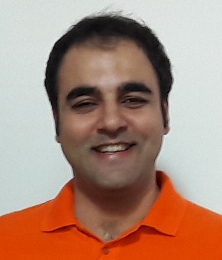PrimaryAccess 2.0 And How To Use It In Your Classroom
Nearly two decades ago, the historian Ed Ayers wrote that "History may be better suited to digital technology than any other humanistic discipline". The challenge is to extend the effective use of these resources to middle and high school history classrooms. Digital documentaries offer students an engaging activity that incorporates primary source documents and celebrates the students’ status as digital natives.
In 2005, we introduced a freely available tool for doing just that. PrimaryAccess is a web-based, classroom tool that makes it easy for students to create compelling mini "Ken Burns"—like documentaries narrated in their own voice. It was used by thousands of students and teachers and was listed as one of the top 25 educational sites by the American Library Association in 2009. We have just updated it to an HTML5 progressive web app and are offering it freely to classroom teachers.
Primary Sources
Educators agree that students who effectively use primary source documents develop enhanced historical thinking skills. Ready access to these rich resources offers social studies teachers an array of enhanced teaching methods. Teachers have been using primary source documents in history classrooms for a number of years. Technology has been facilitating that use for well over a century, beginning with the "Jackdaw" kits of printed reproductions of historical documents. The internet is the Jackdaw kit of our millennium, particularly the archives in digital history centers.
PrimaryAccess offers a comprehensive environment designed expressly for the creation of digital documentaries, from access to primary sources to the final presentation of finished digital movies. The PrimaryAccess toolkit includes an online, web-based digital video editor that supports Ken Burns-style pan-and-zoom capabilities and titling, with integrated links to online collections of digital resources created by trusted sources, such as the Library of Congress and other rich archives.
Students have access to an online collection of over 12,000 historical documents and images, along with any additional resources that may be added by the teacher. These images can be placed beside the text of an accompanying narrative developed with an internal word processor. From these primary sources, students create a digital movie that consists of a montage of images, text, and video accompanied by student narration.
A Web-Based Tool
PrimaryAccess was designed to promote writing in all disciplines and encourages the use of primary sources in social studies. Teachers can easily assign projects to students with a selection of images to choose from. Steps like scripting, recording, and saving are entirely cloud-based—no software to install—and the movies are easy to retrieve and share.
Students narrate their movies in their own voice or opt to use a computer text-speech voice for their narration. Those with special needs and English language learners can use the integrated speech-to-text options to dictate their scripts directly within PrimaryAccess.
Looking For Collaborators
PrimaryAccess is supported by the University of Virginia’s Sciences, Humanities, and Arts Network of Technological Initiatives (SHANTI), and we are committed to providing a robust cloud-based environment for teachers to freely use in their classrooms.
Academic projects are typically better at offering innovative projects than they are at encouraging widespread adoption. We would like to reach out to the community of teachers, digital resource holders, organizations, and corporations to build on the previous success of PrimaryAccess and create an ecosystem to support these documentaries.
We are currently working with the National Humanities Center, The National Endowment for the Humanities, and faculty from Harvard, Fordham, and UVA. We welcome any interested people to contact me if you are interested at: [email protected].



